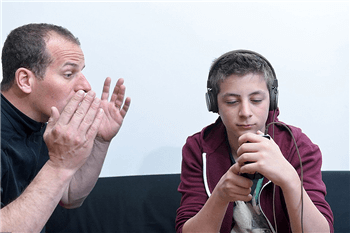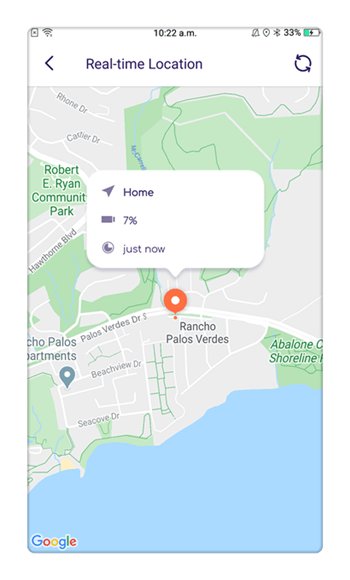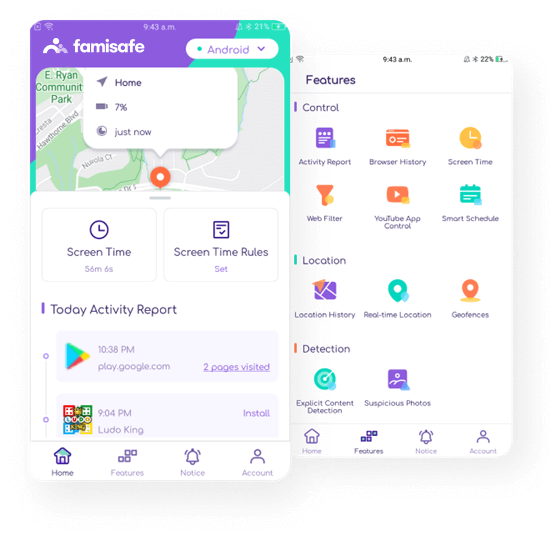10 Things You Should Never Say to Teens
Things Never Say to Teens
ALL TOPICS
- YouTube Parental Control
-
- How to see your YouTube history?
- Put parental controls on YouTube
- Delete TikTok Account without Phone Number
- Ways to block YouTube channels
- Ways to Get Somone's IP Address and Hide IP Address
- A complete guide on YouTube parental control
- Kids safe YouTube alternative
- Top 5 TikTok Alternatives
- Methods to restrict YouTube adult content
- Social Media App Parental Controls
- Parental Control Tips
Dec 12, 2025 Filed to: Parenting Tips Proven solutions
Teenagers undergo many changes at the psychological and physiological levels. At this period of their lives, parents should be extremely careful about what they say because teens tend to take adults’ words literally. Statistics say that a lot of teenagers leave their homes because they have been offended by the careless words of their parents. Also, children at this age are at risk of suicidal thoughts. Specialists explain this behavior by the fact that teenagers sometimes consider themselves unwanted in their family, not loved or not understood by parents.
What is worth noting is that some of our most-used words may cause the worst harm to our kids. In this article, we have listed the 10 things that parents should avoid saying to their kids. Continue reading to see if you have made the same mistakes.

10 Things You Should Avoid Saying to Teens
Adults who unwittingly say offensive words to their children do not wish them bad. They just try to appeal to common sense when kids behave aggressively, acquire disastrous habits, or become reserved. How can family members keep harmony and maintain warm and friendly relations with each other? Parents need to learn taboo words and phrases that they can never say to teens.
1. At my house …!
A house you live in belongs to all family members, including your children. This terrible phrase can push teenagers to the idea that they don’t have a home to be themselves and feel safe. For sensitive kids, they may feel that they do not belong to their family.
2. I don’t care what you want!
You will tell them that they are not important and are not needed by saying this to your kids. If a parent keeps saying this word to his/her children, their kids may refuse to express their emotion or opinions anymore. These words will stick in teens’ subconscious, and it will be very difficult to find a common language with them in the future.
3. Do it now!
Such an order will immediately cause an opposite reaction. By saying these words, you will demonstrate that you don’t care what other things your son or daughter has to do or that you don’t respect their opinion. If you teach an adolescent to obey commands, everybody will take advantage of him or her in the future. It will be better to discuss the priority of different things with your children to get to know how to arrange their daily stuff.
4. I don’t care why!
Hearing this phrase, teenagers tend to stop listening and retreat into their shells. It is better to ask your son or daughter why things happened this way and not otherwise. Try to figure out together how to avoid mistakes in the future. Letting your kids explain the reasons can also help them develop logical thinking.
5. You are not grown enough to make your own decisions!
The more often you tell your kids that they are still too little, the less responsibility they will feel for their actions. If you want to raise your children as independent people who are responsible for what they do, then you should trust them more and allow making some decisions on their own (or at least together with you).
6. You do not have the right to talk to me like that!
Forget phrases that tell a teenager that he/she doesn’t have a right to do something. Remember, you an adult. Therefore, you are responsible for a calm dialogue, not your underage kid. Keep in mind that most of the time, your kids are just following the way you are behaving. If you do not want your kids to say certain things, you should not use them.
7. Because I said so!
If a teenager asks a question, "Why?" you should always give him/her a detailed explanation instead of saying, "Because I said so." Otherwise, your requests, demands, and statements will mean nothing to an adolescent. Give your teen daughter or son weighty arguments and, most likely, they will listen to your opinion.
8. You can’t have it all.
Life is full of victories and defeats, but why make your children feel like they will never be able to achieve everything they want? Teens remember our words, and they remain in their subconscious. Youth have endless opportunities to become everything they want. Think about how different your life would have been if you had known it when you were a kid.
9. I told you so.
When you say so to your minors, they may think you are happy that their ventures failed. Of course, parents want to protect their children from mistakes and their consequences, but kids will not be able to gain experience without mistakes. They won’t become persistent and persevering. The next time you want to say "I told you so", just ask yourself a question: "What is more important: to be right or to be happy?" Choose "happy" and let teens make their own mistakes because they will be the most valuable lessons in their lives.
10. You are not allowed to do this!
As you know, the forbidden fruit is sweet. When you forbid a teenager to do something, this makes him or her even more willing to go against your wishes. If your child's habits or behavior cause you anxiety, the situation won’t be fixed with prohibitions. On the contrary, you can aggravate it even more. Talk to your teen kid and explain why something is bad for him/her and that you are worried. An open dialog will help you achieve more than strict measures.

FamiSafe - A useful app to keep an eye on your kid's online activity
As parents, we need to be careful of what we say to them and pay attention to their online activity. Parents' desire to protect teens from the dangers of the surrounding world is quite natural and understandable. However, it is impossible to always keep an eye on kids, especially if parents are busy with their work. You can give your children a list of rules, prohibitions, and requirements, but with a probability of 99.9%, your child will go breaking them as soon as you are not around. Does it mean that you can’t do anything to ensure the safety of your children? Of course, you can! A reliable parental control app will come to the rescue.
There are various parental control apps on the market for parent's choice. All of them have their own advantages and disadvantages. It is not easy for parents to choose the right one for them. Here, we would like to recommend FamiSafe to you.
Compared with other parental apps, FamiSafe is best known for its wide compatibility and the ability to detect suspicious content on kid's digital devices. It is compatible with Android, iOS, Fire OS, Windows, and Mac, covering almost all the smart devices that kids may have. Moreover, its Explicit Content Detection and Suspicious Photos features can help detect cursing words on your children's social accounts or albums.
- Location Tracking & Geo-fencing
- App Blocker
- Web Filtering
- Screen Time Control
- Smart Parental Control Setting
FamiSafe offers a set of functions that let you know what your children do on their phones, how much time they spend on their smart gadgets, what apps they use, and what web resources they visit on the network. If any of this causes you concern, you can block some particular apps or websites (temporarily or permanently).
With the help of the app usage functionality, you can monitor which applications your teens use on their mobile devices, at what time they open and close these programs, and how many hours a day they spend on the apps. If you notice signs of addiction, you can limit access to third-party software at certain hours (during classes or at bedtime) or when your child is in a certain place (at school, for example) using the Smart Schedule feature.
Along with app monitoring, you can also track your child's activity on the network. Browser history will help you find out which sites attract your son or daughter's attention, whether there are sites with harmful content among them, and how often children visit different web resources. If your kid's surfing habits make you worry, you can block a particular site or configure FamiSafe to send notifications when a child tries to access it. You are also able to block inappropriate sites in one fell swoop by selecting categories of sites with prohibited access (those can be gaming, gambling, adult sites, etc.).
Using the screen time report, you can find out when, how often, and for what purposes your child uses their device. If you think that your daughter or son hangs on a phone for too long, you can set hourly device usage limits.
Location tracking functions allow you to find out where your children are. FamiSafe can show a child's location both in real-time, and also it will keep track of places that he or she visited in the past. Thus, you can keep children away from dangerous areas. If you want the location tracking function to work even more efficiently, you can complement it with geo-fencing and get notifications when your child approaches risky places.

FamiSafe will help you unobtrusively keep an eye on your child without the need for strict restrictions. If the app notices any alarming activity, it will let you know by sending notifications to take further action. All the control over a child's phone is carried out remotely.
It is important to understand that your kids will know that FamiSafe is running on their phones. That’s why you need to talk to them and explain that you use a parental control app, not because you don’t trust or want to punish them but because you are worried about their safety.

With the assistance of modern technology, it is not difficult for parents to monitor kid's online activity. Yet, it is not that easy to safeguard the mental health of our children. It would be better for parents to watch what they say to their kids daily and avoid saying the above-mentioned things to teens.



Thomas Jones
chief Editor